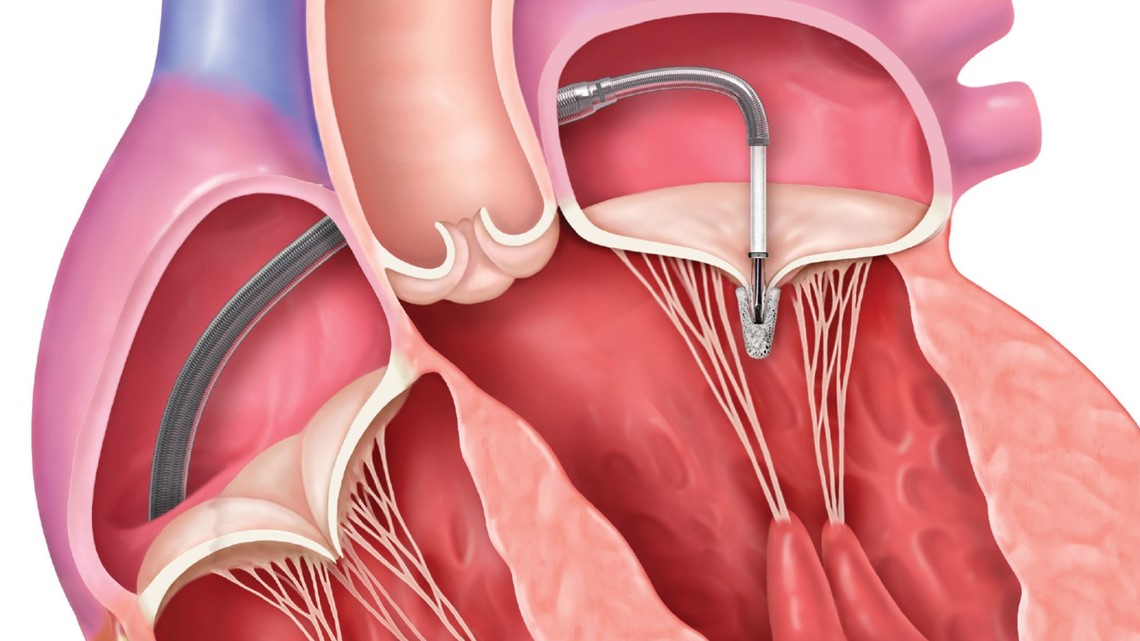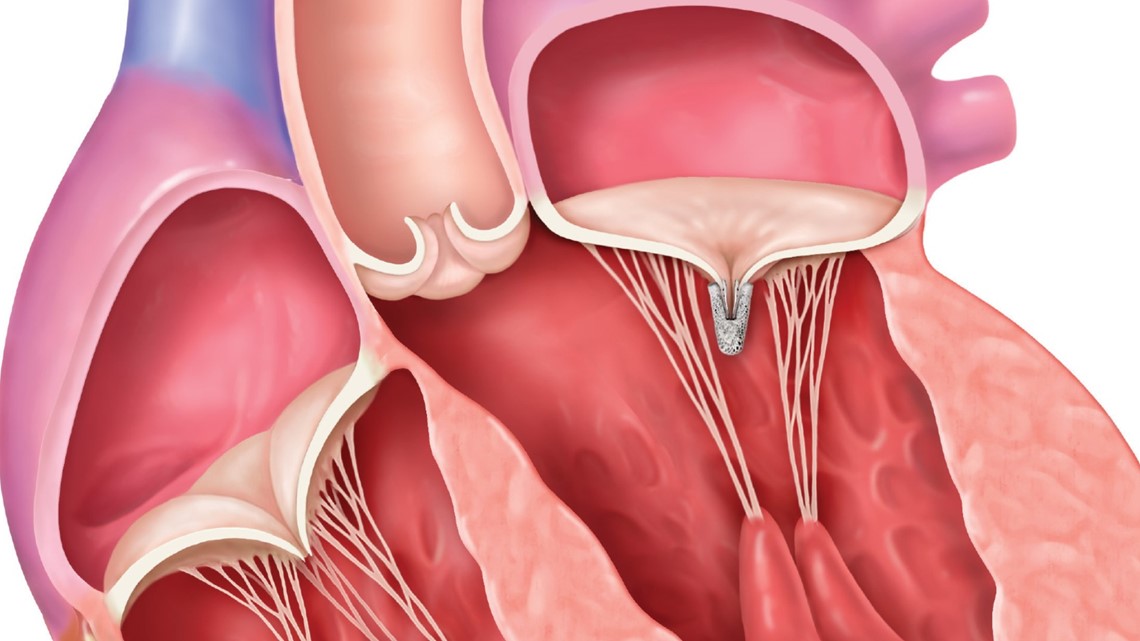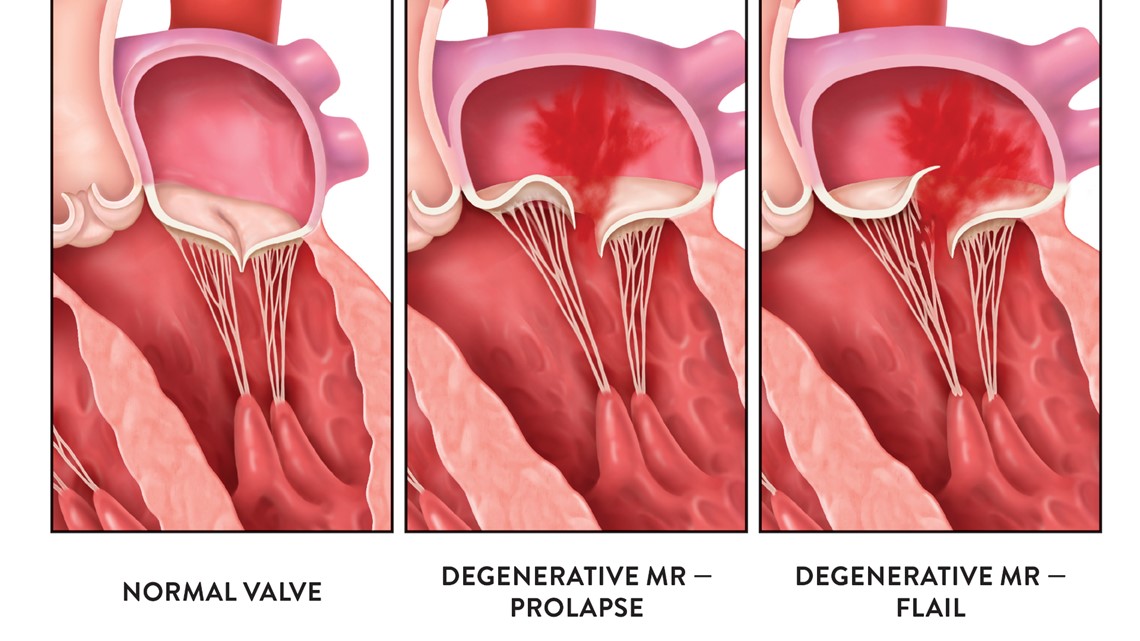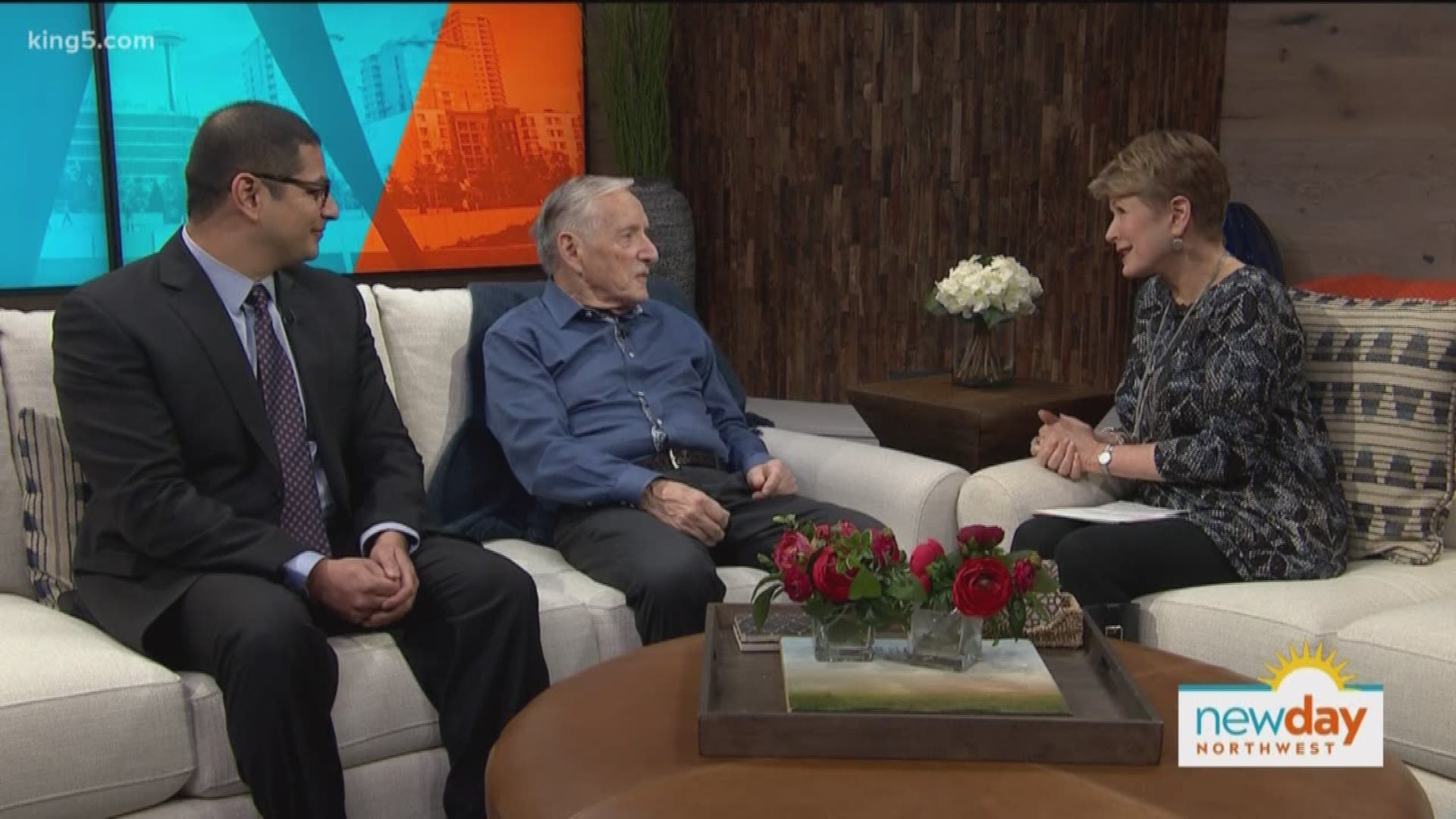SEATTLE — Heart valve problems used to mean open heart surgery, with an extended stay in the hospital to recover afterward. Recent advancements have made it possible for doctors at Virginia Mason to repair heart valve issues with minimally invasive procedures that get patients in and out of the hospital in a matter of days.
Dr. Moses Mathur from the Virginia Mason Heart Institute and his former patient Chic Bertolacci join New Day Northwest to talk about the life-changing potential of minimally invasive heart surgery.
Chic Bertolacci underwent a minimally invasive procedure to fix a Mitral Regurgitation in his heart. Bertolacci lives an active life and originally noticed something was wrong when he had difficulty breathing after very light exercise.
"I found out I couldn't walk anymore because I couldn't breathe, there was water in my lungs," he said. "When that happened I knew I had to do something, which led me to the cardiologists at Virginia Mason."
Dr. Moses Mathur recommended the MitraClip Repair Procedure, a relatively new surgery that allows surgeons to repair the Mitral valve through a small incision in the groin.


"We're able to repair the Mitral valve leaflets together using what I call a 'V-shaped stapler,'" Dr. Mathur said. "Patients have tremendous success with this procedure."


The FDA approved the technology for minimally invasive surgery in 2013 which is relatively new in the world of heart surgery. Minimally invasive surgery is a good option for patients who would otherwise get turned away because of age or other complications.
The surgery is meant to repair the Mitral valve, one of four major valves located in the heart. The Mitral valve is between the left atrium in the top chamber of the heart and the left ventricle in the bottom. The valve consists of two thin pieces of tissue doctors call leaflets, and it's designed to open and close to allow blood to flow from the top chamber to the bottom chamber.


Leaflets can become deformed or calcified causing Mitral Regurgitation which occurs when blood flows back up the valve, causing pressure in the heart, fluid in the lungs and swelling in the lower extremities.
"If you don't treat this some patients do ok with medications for a while," Dr. Mathur said. "Eventually it leads to heart function becoming poor, and eventually heart failure."
After Bertolacci's surgery and a short three day stay in the hospital, he was discharged, "The next day I was back in the gym, working out again."
He says after his heart surgery at Virginia Mason he's back to 95% of his original energy, "I'm very pleased, I can do all the things I want to do."
Dr. Mathur encourages anyone experiencing the symptoms of Mitral Regurgitation to get it checked out by a doctor.
"The earlier you get the disease processed the better," Dr. Mathur said. "Perhaps at first we can just treat it with medications but eventually if it gets worse we'll know about it, so you can act before it gets too late."
This story is sponsored by Virginia Mason. Watch New Day Northwest 11:00 weekdays on KING-TV Ch.5 or streaming live on KING5.com. Connect with New Day via Facebook, Twitter, Instagram.

